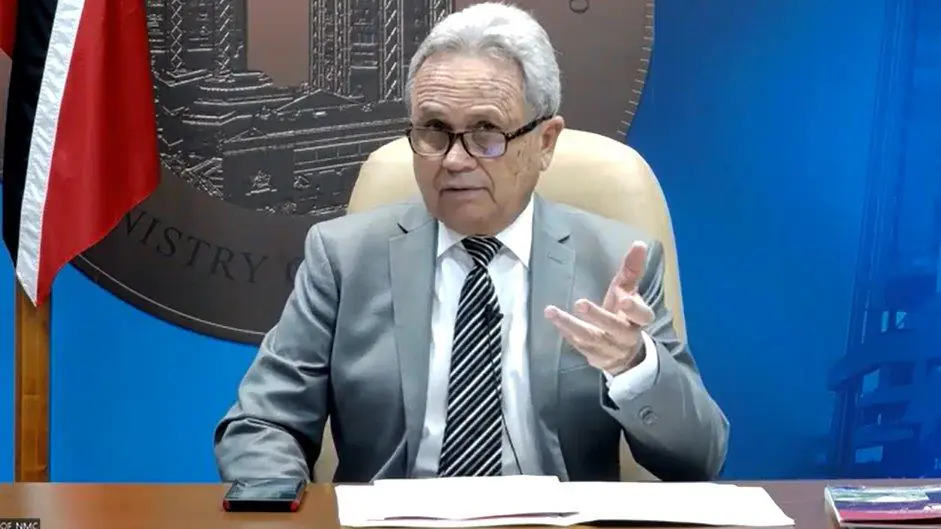Finance Minister Colm Imbert is supporting the TT International Finance Centre (TTIFC)’s efforts to push Trinidad and Tobago towards becoming a cashless society. He spoke at the National Financial Inclusion Survey Report (2023) launch, where financial services ombudsman Dominic Stoddard revealed that 21% of the population still does not use the formal banking system. TTIFC CEO John Outridge emphasized the importance of reducing this number, as increased financial inclusion is directly linked to a reduction in poverty and inequality.
Financial inclusion provides opportunities for marginalized and low-income individuals to access formal financial services, such as savings, credit, and insurance. By empowering them with the tools to manage their finances and invest in income-generating activities, financial inclusion can help lift people out of poverty and reduce economic disparities. A study by credit card company Mastercard in TT and Jamaica found that excessive dependence on cash transactions was slowing economic growth by stimulating informality, increasing fraudulent activities, and limiting financial inclusion.
Imbert noted that the majority of stores in TT and Jamaica are cashless, and all transactions are done online or physically with credit and debit cards or mobile wallets. This trend is in line with the trend across Europe and Asia. In 2022, India became the second-largest digital market in the world, closing in on China in first place.
The transition to a cashless society will not be easy, as stakeholders face challenges such as trust in financial institutions, low financial capability, and financial fraud. The Inclusion Survey Report showed that 25% of households lacked access to formal financial accounts due to barriers such as documentation and high costs. Nearly 41% of households do not have sufficient funds to open and maintain an account, with 13% citing a lack of necessary documentation as the reason for not having a financial account. Furthermore, 33% believe they do not require an account.
Imbert also advocated the use of digital payment solutions, which he said offer greater convenience, security, and efficiency. Sixty-three per cent of all transactions are conducted in cash, exposing individuals to theft, loss, and mishandling risks. Mobile wallets, contactless payments, and online banking services can significantly reduce reliance on cash and facilitate greater financial inclusion.
Imbert plans to speak with Education Minister Dr Nyan Gadsby-Dolly about the possibility of digital financial education programs in schools as one such solution. The Ministry of Trade and Industry (MTI) is modernizing its national e-commerce strategy to create an environment that facilitates and promotes e-commerce for local businesses to serve domestic and international markets.
The survey revealed many MSMEs struggle with high borrowing costs, limited access to credit, and a lack of digital payment solutions. With 77% of these businesses lacking a business bank account, 86% of these MSMEs exclusively rely on cash transactions, indicating a significant gap in the digital payment ecosystem.
The Trinidad and Tobago government is working towards a cashless society, with the TTIFC partnering with the Licensing Division to provide digital payment kiosks at its Caroni offices. Financial services ombudsman Dominic Stoddard revealed that 21% of the population still does not use the formal banking system. Financial inclusion is directly linked to a reduction in poverty and inequality, as it provides opportunities for marginalized and low-income individuals to access formal financial services such as savings, credit, and insurance.
A study by Mastercard in TT and Jamaica found that excessive dependence on cash transactions was slowing economic growth by stimulating informality, increasing fraudulent activities, and limiting financial inclusion. The study argued that the TT economy could grow by an additional 3.5% if the country increased its electronic payments by 30% over four years.
Imbert noted that most stores were cashless, and one store was even unable to provide him with change due to little cash in the cash register. There is a collaborative move among government ministries to push a transition to a cashless society. The Ministry of Trade and Industry (MTI) is modernizing its national e-commerce strategy to create an environment that facilitates and promotes e-commerce for local businesses to serve domestic and international markets. The Ministry of Finance, through TTIFC, has been working closely with the MTI to support the development and promotion of e-payment channels within the state, emphasizing the facilitation of e-money and cashless transactions adoption.
However, the transition will not be easy, as financial services ombudsman Dominic Stoddard pointed out major challenges facing stakeholders. Trust in financial institutions is a major contributing factor, while a Central Bank survey showed 44% of the country has a low financial capability and 35% of adults have been victims of financial fraud.



